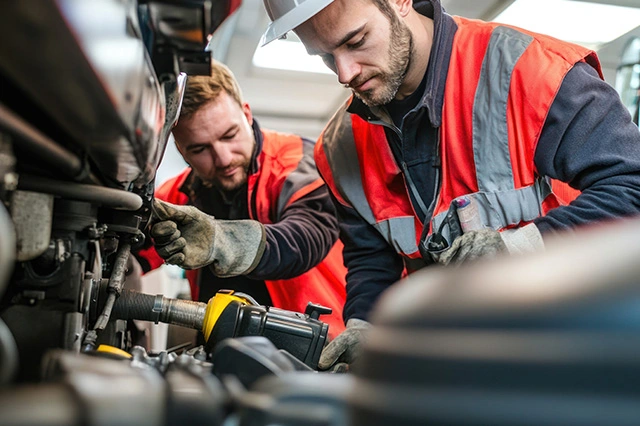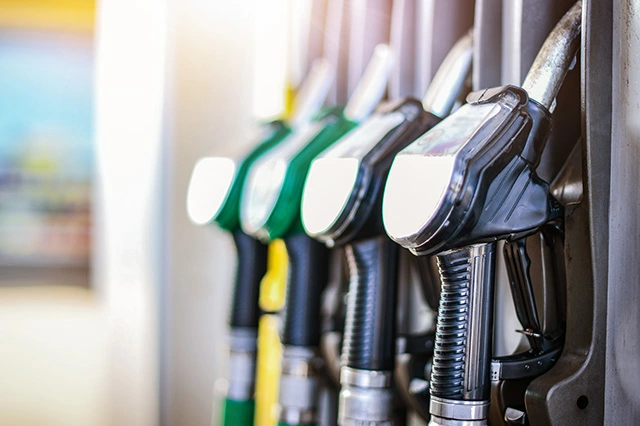The needing or not needing of an operators licence for a HGV is often a confused issue. Here we look to debunk some of the misinformation around the requirement for an operators licence.
What is an Operators Licence?
An Operator’s Licence, often referred to as an “O Licence,” is a legal requirement for businesses or individuals operating heavy goods vehicles (HGVs) in the UK. It is issued by the Traffic Commissioner and ensures that operators adhere to safety, environmental, and legal standards.
Who Needs an Operator’s Licence?
Any individual or company that uses goods vehicles above a certain weight for commercial purposes must have an Operator’s Licence. This includes:
- Haulage companies transporting goods on behalf of clients.
- Businesses using their own HGVs for transporting their products.
- Fleet HGV operators.
What Lorries Need an Operator’s Licence?
An Operator’s Licence is required for:
- Vehicles with a gross vehicle weight (GVW) exceeding 3.5 tonnes such as tipper trucks.
- Combinations of vehicles and trailers where the combined GVW exceeds 3.5 tonnes.
Why You Need an Operator’s Licence
An Operator’s Licence is necessary to:
- Ensure the safety and roadworthiness of HGVs.
- Comply with legal and regulatory requirements.
- Promote fair competition by ensuring all operators adhere to the same standards.
- Avoid hefty fines and legal action for non-compliance.
When Do You Not Need An ‘O Licence’?
You do not need an operator’s licence for a Heavy Goods Vehicle (HGV) in the following circumstances:
- Private Use: If the vehicle is being used for personal, non-commercial purposes.
- Small Vehicle Exemption: If the vehicle’s gross plated weight or unladen weight is below certain thresholds (generally below 3.5 tonnes).
- Certain Agricultural and Forestry Vehicles: Specific agricultural tractors, agricultural trailers, and other types of agricultural and forestry vehicles may be exempt, especially when used in limited distances from the base of operations.
- Vehicles Used for Salvage or Recovery: Under specific conditions, vehicles used solely for the purpose of salvage or recovery operations may not require an operator’s licence.
- Electrically Propelled Vehicles: If the vehicle is electrically propelled and does not exceed a certain weight limit.
- Certain Exempted Goods Vehicles: Vehicles carrying goods related to showmen, exhibition or fairground vehicles under specific conditions.
Always check the most recent and specific guidelines from the UK government or the Traffic Commissioner as regulations and exemptions may change.
How to Get an Operator’s Licence
- Determine the Type of Licence Needed: Standard National, Standard International, or Restricted.
- Application Process:
- Complete the application form (GV79).
- Provide financial evidence proving you have enough funds to maintain vehicles (around £8,000 for the first vehicle and £4,450 for each additional vehicle).
- Advertise your intention to apply in a local newspaper to allow objections.
- Submit your application with the necessary fees.
- Timeframes:
- The process usually takes 9-12 weeks from application to approval.
- This includes a public inquiry if there are objections to your application.
Cost of Getting an Operator’s Licence
The cost of obtaining an Operator’s Licence varies based on the type of licence and the number of vehicles. As of 2024, the fees are approximately:
- Application fee: £257
- Issue fee for a new licence: £401
- Additional fees per vehicle are also applicable.
It’s important to check the most up-to-date fees on the GOV.UK website as they can change.
Can You Get HGV Insurance Without an Operator’s Licence?
No, you cannot legally operate an HGV without an Operator’s Licence, and therefore, reputable insurance companies will not provide insurance for a lorry without one. The licence is a legal requirement for commercial operation, and operating without one invalidates insurance cover.
Even if considering 7.5 tonne lorry insurance for a smaller truck, you will still require an ‘o licence’.
What You Will Be Able to Do Once You Have an Operator’s Licence
With an Operator’s Licence, you can:
- Legally operate HGVs for commercial purposes.
- Transport goods both domestically and internationally (with the appropriate licence).
- Ensure compliance with safety and environmental standards, reducing the risk of accidents and penalties.
- Gain credibility and trust from clients and partners by adhering to legal requirements.
In conclusion, obtaining an Operator’s Licence is a crucial step for anyone intending to operate heavy goods vehicles in the UK. It ensures legal compliance, promotes safety, and allows for the legitimate and insured operation of HGVs. The process requires careful preparation and adherence to regulations, but once obtained, it opens the door to numerous commercial opportunities in the transport and logistics industry.







